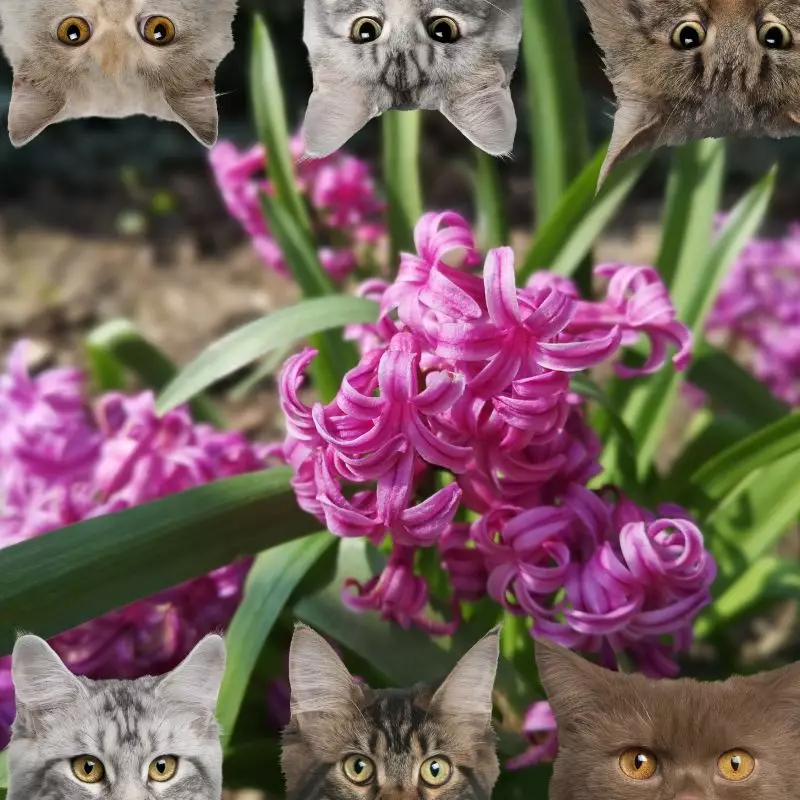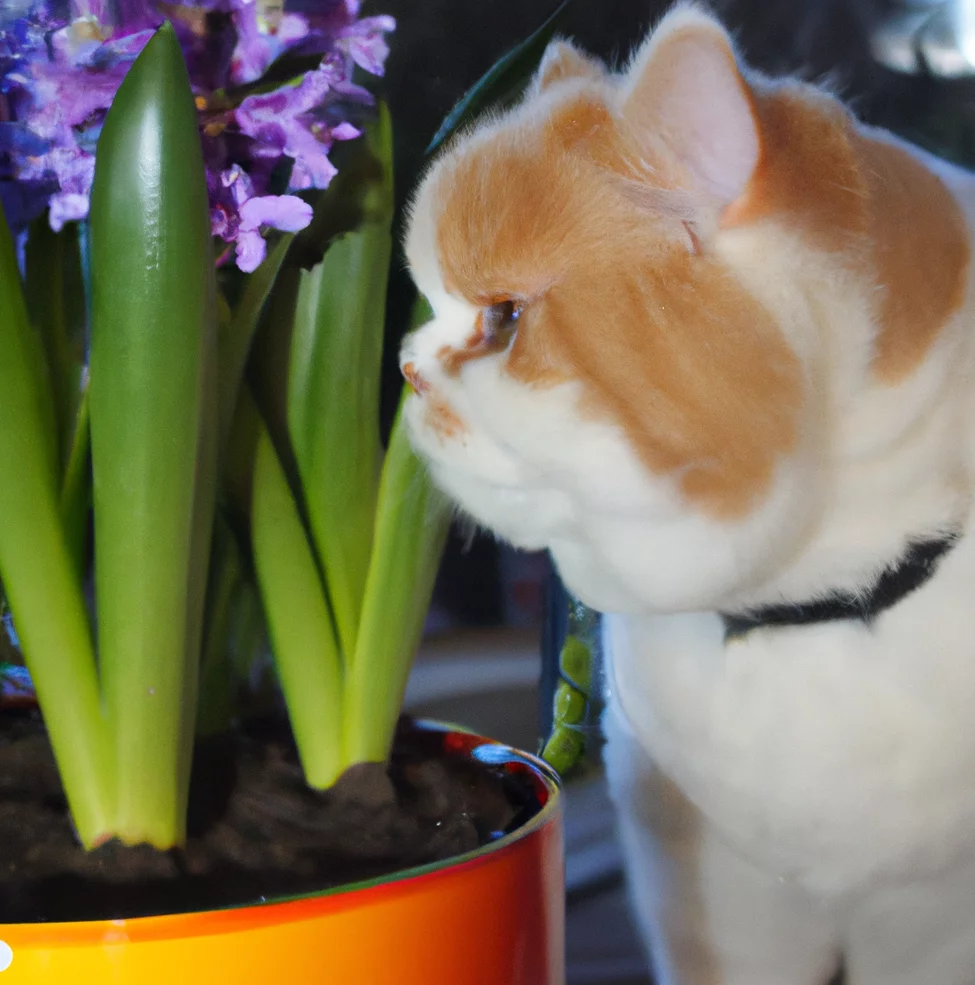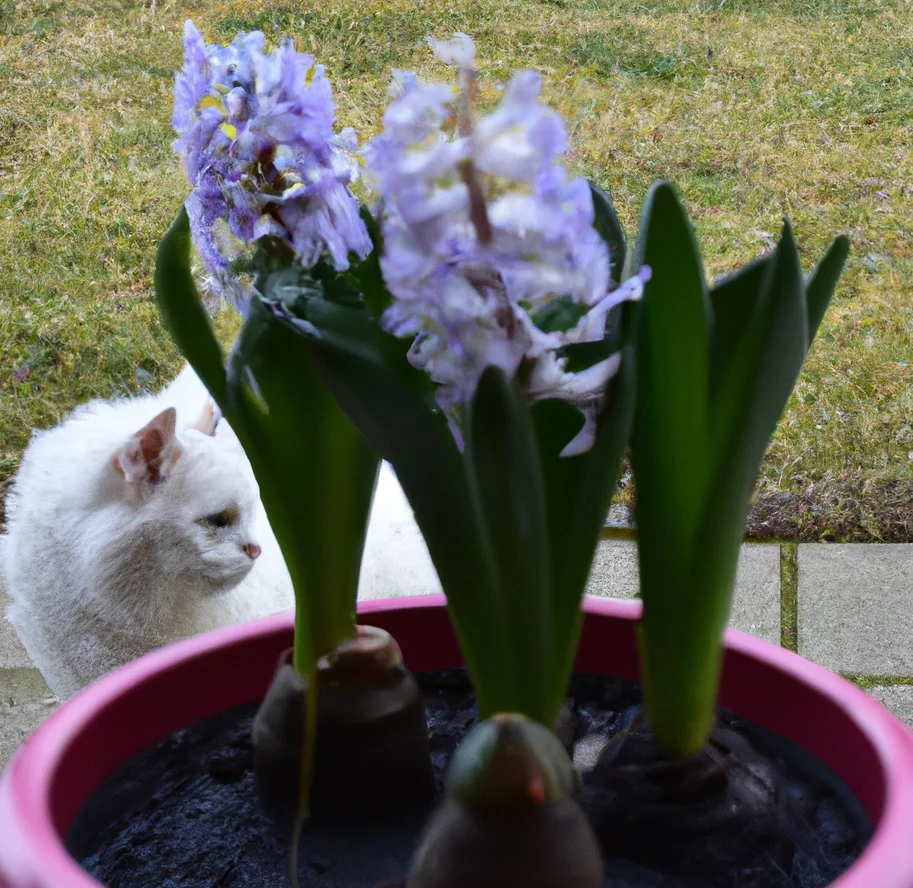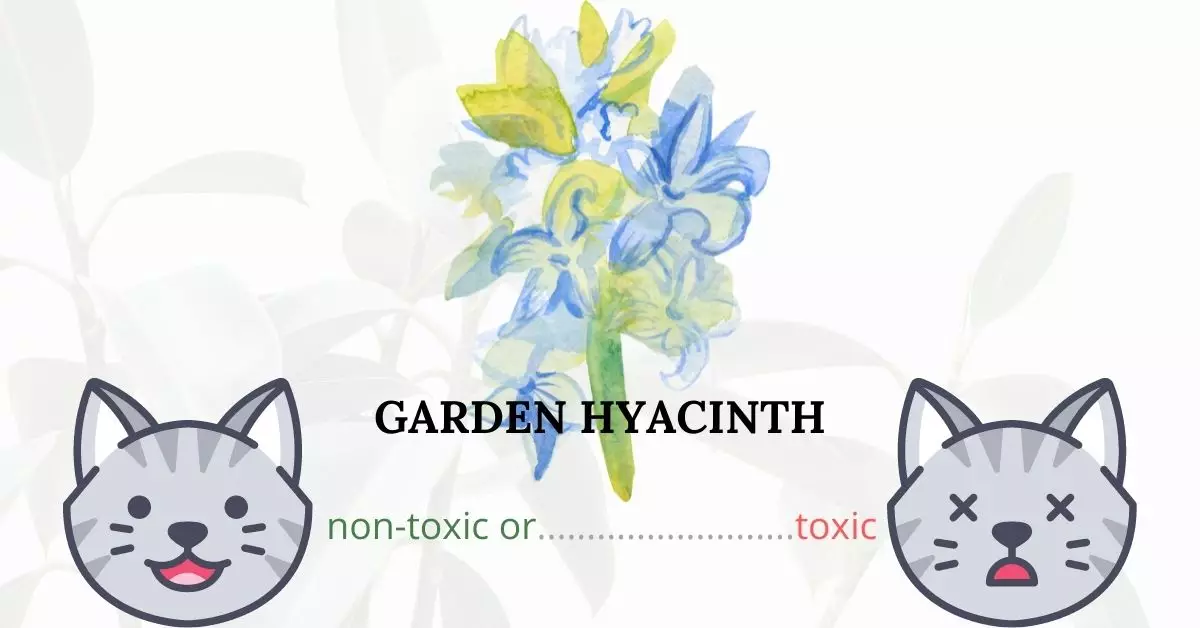Garden hyacinths, commonly referred to as hyacinths, are flowering plants adorned with captivating trumpet-shaped flowers. While they are a favored choice for many gardeners, it is crucial for cat owners to understand that hyacinths can pose serious health risks to their feline friends. Indeed, these plants contain lycorine alkaloids and other potentially harmful compounds. Upon consumption, cats might experience skin irritation, vomiting, diarrhea, and mouth irritation, with hyacinth bulbs containing the highest concentration of these toxins. If you ever suspect your cat has ingested any part of a hyacinth plant, it’s imperative to seek immediate advice from a veterinarian.
This article is the result of a collaborative effort with a team of experienced DVMs (doctors of veterinary medicine). Their expert insights enable us to deliver accurate and up-to-date information about the potential risks various plants, like the Garden Hyacinth, pose to cats. Furthermore, our claims are supported by research from high-authority websites such as the ASPCA and PetMD, ensuring our readers receive only the most reliable information.
Clinical Signs of Garden Hyacinth Poisoning in Cats

When cats come into contact with, or consume parts of, a Garden Hyacinth plant, several clinical symptoms may manifest due to the plant’s toxic compounds, particularly lycorine alkaloids. Here’s a detailed look at the potential signs of poisoning and their underlying causes:
- Nausea: The ingestion of hyacinth can upset a cat’s stomach, leading to a feeling of sickness and unease.
- Vomiting: This is a direct reaction to the toxic compounds present in the hyacinth, as the cat’s body tries to rid itself of the harmful substance.
- Diarrhea: Much like vomiting, diarrhea acts as a mechanism for the cat’s system to expel the toxins rapidly.
- Excessive Drooling: The irritating properties of hyacinth can stimulate increased salivation, especially if the cat has chewed on the plant.
- Oral Irritation: Compounds in the hyacinth can cause a burning or stinging sensation in the mouth, leading to discomfort.
- Breathing Difficulties: Inhalation of or exposure to the plant’s pollen or scent may irritate the respiratory system, causing shortness of breath.
- Increased Heart Rate: The stress of being poisoned, coupled with the direct effects of the toxins, can cause an accelerated heartbeat.
- Pawing at the Mouth: This is a clear sign of oral discomfort or irritation, usually resulting from chewing or biting the plant.
- Depression: Behavioral changes such as lethargy or a lack of interest in usual activities can arise due to the overall malaise caused by the toxin.
- Tremors: In severe cases, the neurological impact of the toxins may cause involuntary muscle movements or shaking.
If you notice any combination of these symptoms in your cat after potential exposure to Garden Hyacinth, it’s paramount to consult a veterinarian promptly.
First Aid and Treatment of Garden Hyacinth Poisoning in Cats

Managing your cat’s symptoms is the primary care that the veterinarian will provide. This may include washing out the cat’s mouth to remove all remaining bits of plant material and soothe the irritation of the oral cavity. Inducing your cat to vomit by giving it hydrogen peroxide. And performing gastric lavage to remove all toxic contents from your cat’s stomach.
Specific medications may also be prescribed by the veterinarian depending on the extremities of your cat’s illness. Your cat may be also hospitalized as it may deem necessary in his condition.
Recovery from Garden Hyacinth Poisoning in Cats

After therapy, mild symptoms of hyacinth poisoning will gradually disappear. Your cat will most likely recover completely within 48 to 36 hours, but if he or she is experiencing severe illnesses, it may take longer.
Once you are home with your feline, give him or her an ample supply of fluids as this will aid in clearing up the stomach. Make sure to ask your vet about the post-treatment care that your cat may need.
Prevention of Garden Hyacinth Poisoning in Cats
Keep your cat occupied and mentally stimulated at home to restrict him or her from going outside. You may utilize cat playpens or cages to lessen your worries. You can also try growing cat-friendly grasses that your cat can graze on. This will minimize your cat’s curiosity in nibbling on toxic plants outdoors.
If you love plants but have cats at home, check out these lists:





